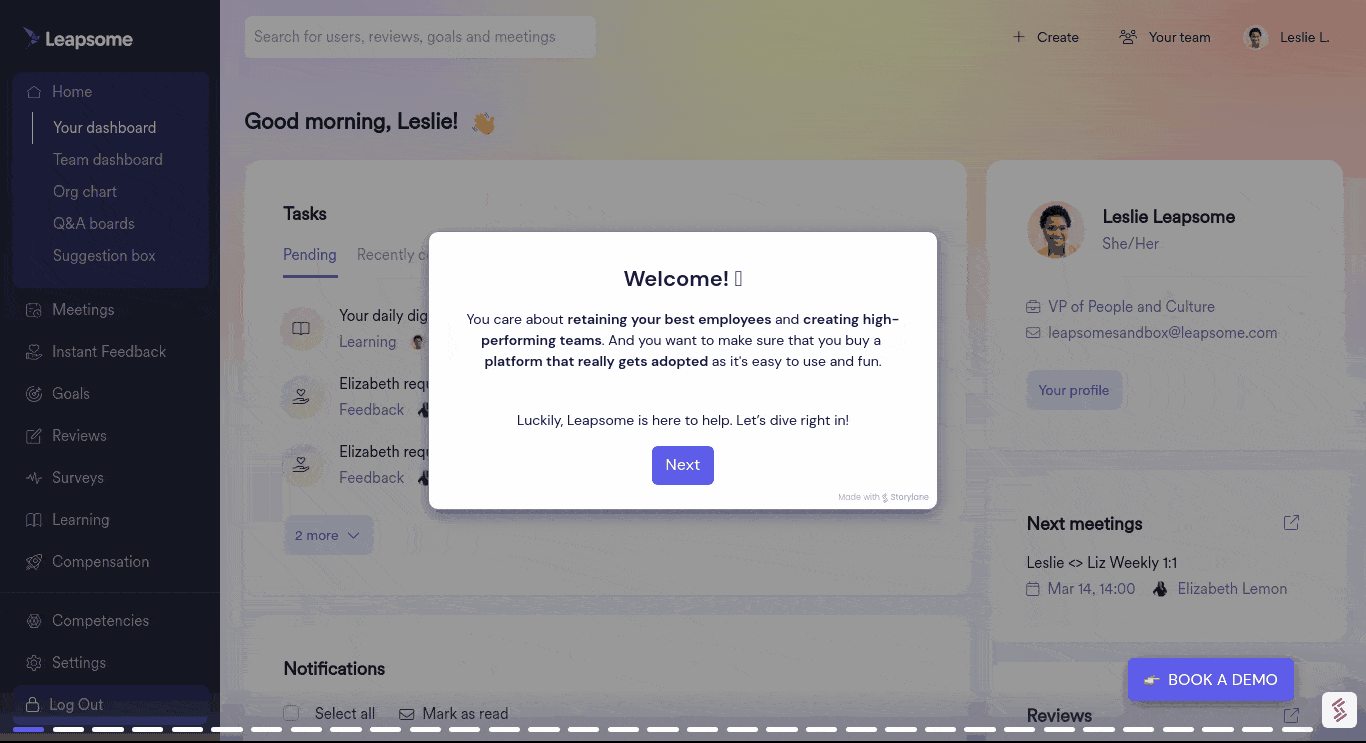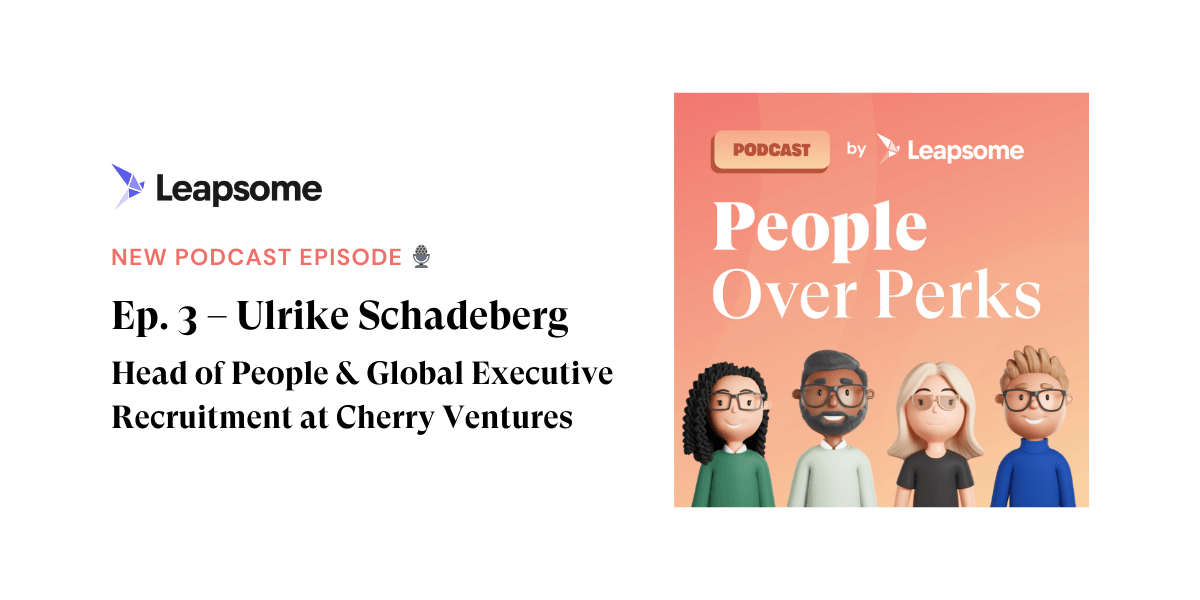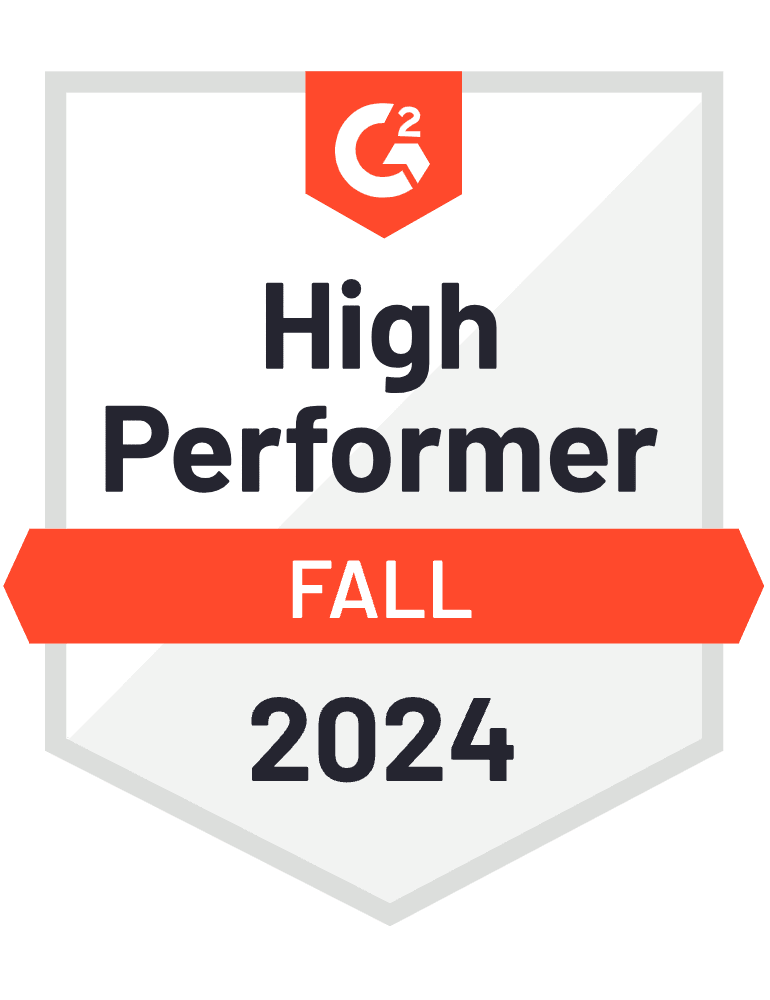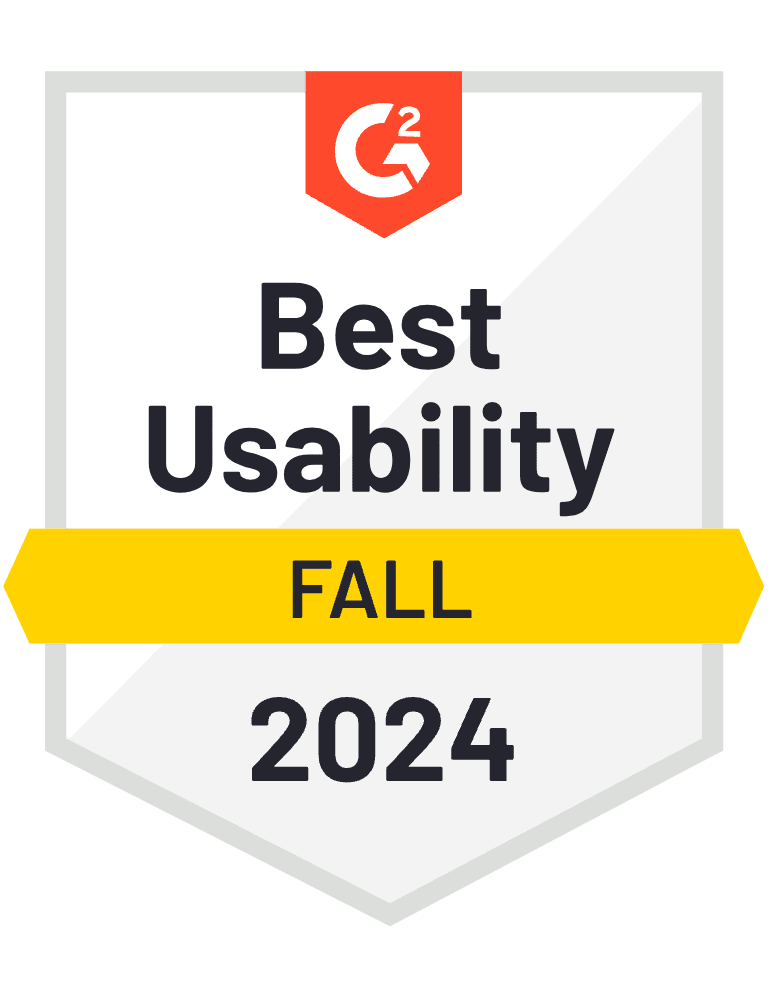A complete HRIS requirements checklist (+ a free template!)
.webp)
Most companies believe they have a clear HR technology strategy — but many struggle to use this software to achieve business objectives.* So, how do you avoid this pitfall when investing in a new HRIS? The answer is choosing a platform that respects the human element at the center of your operations.
While your HRIS should streamline processes and drive results, it should never be at the expense of the employee experience; after all, your team will use the system regularly, and their experience will largely determine success. Your HRIS must meet your people’s needs and adapt to different challenges while slotting into your business’ workflow.
Our HRIS requirements checklist shows you what an ideal solution looks like. You can download this document and refer to it throughout the selection process to ensure you make the best possible choice. Below, we’ve included a breakdown of each HRIS requirement to show you how it works and the likely benefits.
*HR.com, 2024
🧩 Make sure your HR puzzle isn’t missing any pieces
Leapsome is adding a new HRIS module to our people enablement platform with a complete suite of payroll and data management tools.
👉 Join the waitlist
Our free, downloadable HRIS requirements template
One of the biggest workforce trends is the movement toward consolidated HR, attendance, and payroll solutions. This type of software allows businesses to simplify their operations — increasing efficiency and improving the employee experience (EX). Instead of switching between various platforms, HR teams can manage all their people management tasks in one place.
If you take this approach, you might be under some pressure to choose the right platform, as it should encompass every aspect of your HR operations. Comparing all the different providers and assessing each of their features is essential to ensure they meet your HRIS business requirements.
No doubt, you’d rather implement and see the benefits of a new HRIS immediately. Although the research and selection process has been known to take up to five months, you can narrow down your options and save significant time by referring to our downloadable HRIS selection checklist!


As every business is different, you may find that this downloadable checklist doesn’t reflect all your needs and goals — but it’s also suitable as an HRIS requirements template; use it as inspiration for your own checklist and tailor the items to your specific context.
📝 Speed up the HRIS selection process
Our requirements checklist outlines all the essential features you should look for in an HRIS to save you time on research.
👉 Download our HRIS checklist
HR software requirements: A breakdown
Understanding the features and benefits of every tool on our HRIS evaluation checklist allows you to make an informed decision. The analysis below explores every item in more depth so you can make the most of our free download.
Employee information management
Manually collecting and organizing employee files is time-consuming and overwhelming. In today’s globalized workforce, many HR teams must manage people data across various locations and time zones while keeping everything consistent and easily accessible.
An information system eases this process by acting as a centralized database. HR personnel can access it, no matter where they are, to perform tasks from uploading contracts to to managing absences and payroll; best-in-class HRIS platforms also have self-service capabilities, so team members can view and edit their personal information themselves. This feature can save HR professionals time while giving employees more autonomy.
HRIS databases contain sensitive information such as contact details and financial records; that’s why your company’s HRIS must have granular controls and permissions so people can only see what’s pertinent to their role. Intuitive user permissions mean you can configure the system to protect employees without creating extra work for administrators or your IT department.
Payroll
Payroll tools automate the employee compensation process. They streamline and efficiently pay your people and significantly reduce the risk of human error. This benefit can lead to significant financial savings, as each average payroll error costs companies US$291 to resolve.
Moreover, timely and accurate payments increase trust and help maintain employee morale. In uncertain economic times, it goes a long way to show that your company is a reliable source of income and support for its entire team. This reassurance may also contribute to improved well-being and mental health, given that the majority of people say finances are one of the biggest stressors in their lives.
Time & attendance management
The main purpose of time and attendance software is to record employees’ work hours. HR and payroll departments may use this information to calculate:
- Wages and salaries
- Accrued PTO
- Overtime rates
- Absenteeism rates
- Eligibility for benefits
Time and attendance data can give your organization insight into its health and overall performance. For example, high absenteeism may indicate a possible issue; HR could then investigate to find the underlying cause and explore potential solutions.
This feature also enables HR professionals and managers to accept and approve leave requests. Centralizing this process makes it much faster and more straightforward. Administrators can also see all outstanding requests via the dashboard, so there’s no risk of losing track and causing a scheduling issue.
Compensation & benefits management
With a good HRIS, you should be able to seamlessly sync the employee data mentioned above with your compensation management. That means automating the entire process of identifying those ready for pay raises, scheduling salary talks, and making the required changes in the system. All you have to do is review the information and approve. For instance, your compensation tool might help you identify that a team member is eligible for a higher salary band based on improved performance.
Flexibility is key when implementing a compensation process, and Leapsome Compensation enables you to build scalable compensation and promotion systems using our best-practice templates or entirely from scratch — the choice is yours. Our platform makes it easy to create custom rules that reflect all the intricacies of your company policies and adjust them as your practices evolve.
Performance management
Choosing an HRIS with a built-in performance management system means you can integrate evaluations with other processes seamlessly. Namely, you can access relevant data and decide on the right course of action more quickly.
Performance reviews call for real-time data, so it’s essential that all the feedback about employees are relevant and up to date. Let’s take the example of a team member struggling with time management; if they’ve begun to improve in recent weeks, managers must have access to that data so they can include it in the discussion. Then, they’ll be well-informed and positioned to acknowledge the employee’s progress, determine what led to the positive shift, and explore ways to sustain the improvement.
When evaluating an HRIS, check if the software has a comprehensive, continuous performance management feature. Some platforms only have a basic tool that schedules evaluations and keeps track of notes. For the best results, you need an HR platform like Leapsome that supports various performance assessment formats, including peer, 360-degree, and anonymous leadership reviews — Leapsome supports all of these. That way, you’ll get a more accurate picture of team members’ performance and run holistic assessments conducive to growth.
Learning & development
Performance management and learning and development (L&D) go hand-in-hand. Once managers and HR team members identify someone’s strengths and areas for improvement, they can offer support in the form of training.
Choosing a system with built-in learning and development features like Leapsome ensures consistency and cohesion for your L&D processes. You can create competency frameworks that correspond with job descriptions and pathways for career growth. And as you track people’s progress, you can refer to each individual’s employment history, current projects, and trainings for extra context.
Similar to performance management, an ideal HRIS doesn’t treat development as an afterthought. Employees see it as a crucial element of their job, with over two-thirds saying they’re more likely to remain in their role if they have the right learning opportunities. Your HRIS of choice should give you access to courses and learning materials across different industries. As you’re likely to have unique training needs, most teams also require the ability to develop courses from scratch or by using best-practice templates.
Onboarding & offboarding
Nobody benefits more from training than new hires. They’re not only looking to perform at their best and make a good impression but also acclimatize to your company culture and learn your processes from the bottom up. That’s why leading providers like Leapsome also give you access to dedicated onboarding features.
Great onboarding software goes beyond introductory courses. You can develop entire workflows based on everything from orientation and training sessions to introductions and regular check-ins. That means you can capture all the essential elements of onboarding that make recent joiners feel supported and welcomed to the team. As they move along the onboarding timeline, you should also be able to easily monitor their progress and exchange feedback to address any issues.
Onboarding software has become even more critical over the past few years because of how many businesses have gone remote. Your HRIS is often the first touchpoint for new employees and plays a crucial role in shaping their initial experience with your company.
Anonymous surveys
As your people are the heart of your HR processes and business operations, you must give them a voice and involve them in your decisions. That’s where anonymous feedback surveys come in: You can ask employees to comment directly on aspects of your organization that impact their performance, development, and engagement.
Our 2023 Workforce Trends Report uncovered that people leaders tend to significantly overestimate their teams’ engagement levels and well-being; gathering feedback is crucial to measure the real pulse of the company — and take action to improve any issues.
For instance, large-scale organizational changes can be disruptive to employees and often lead to feelings of confusion, anxiety, or doubt. If your company has recently gone through an event like a wave of layoffs, an acquisition, or an operational overhaul, consider running a pulse survey to check in with team members and see how they’re doing. Their responses will give you an idea of general employee sentiment and help you prioritize the initiatives you put in place.
Data analytics & reporting
All of these HRIS features generate a vast quantity of data. A great system equips you with the analytical tools you need to make the most of all the information it throws at you. As a result, you’ll get in-depth insights into your workforce and business performance to inform your strategic initiatives.
Leading people analytics software allows you to configure your data analysis and reporting settings to suit your needs and preferences. You can segment, filter, and visualize all information to explore it from the right perspective. For example, Leapsome gives you a variety of filtering options — like location, role, and level. So, if a specific department has a lower-than-average performance score, for example, you’ll be able to catch it and investigate it further.
With the advent of AI, a great HRIS should leverage that technology and offer you useful AI-driven insights, which are handy for getting quick inspiration for your next steps.
For instance, Leapsome’s AI Copilot empowers managers by:
• Lightening their workload. Forget about piles of paperwork and mental overload — team leads can use AI to automate repetitive manual work and generate tailored recommendations and action steps for their reports. As a result, they’ll also free up time to focus on strategic, high-impact initiatives rather than busy work.
• Making easy, data-guided decisions. With AI, managers don’t have to spend hours deciphering data. Instead, they can access real-time insights, data summaries, and analyses to inform transparent, objective decisions.
Data security & protection
While often overlooked, data safeguarding is a crucial part of HR and people strategy. The number of breaches almost doubled between 2022 and 2023, with many highly publicized attacks. What’s more, hackers are most likely to target the kind of personal data you’d store on an HRIS system, so companies must prove that they’re capable of safeguarding their employees to maintain trust.
Choosing an HRIS that meets high security standards demonstrates your commitment to protecting your team. Your chosen provider must proactively monitor and review the system to maintain compliance with stringent laws like the European Union’s General Data Protection Regulations (GDPR). Your HRIS should also list its active certificates and be ISO 27001-certified — as Leapsome is (check out our security and data protection page).
Finding the HRIS that goes beyond requirements
Choosing a new HRIS should be a thorough and intentional process — but the work you put into choosing the right platform will be worth the investment. A provider that meets all your HR software requirements can help you achieve your long-term objectives and drive better results.
Indeed, great HR technology can have a transformative effect on your company culture and business operations. An HRIS platform that not only streamlines processes but elevates the employee experience can help you foster a positive environment where people really enjoy working.
Leapsome understands the impact that an effective, centralized HR system can have on an organization. That’s why we’re introducing HRIS features to complement our existing people enablement features. You can benefit from HR software tools like payroll and attendance management alongside performance, development, and engagement tools to take your company to the next level.
With an HRIS system that prioritizes the employee as Leapsome does, you can create a workplace where everyone thrives and succeeds.
👥 Put people first and paperwork second
Leapsome is introducing HRIS features to complement its development, performance, and engagement tools and give you a consolidated, employee-first solution.
👉 Book a demo
Ready to upgrade your people enablement strategy?
Explore our performance reviews, goals & OKRs, engagement surveys, onboarding and more.
.webp)
.webp)
 Request a Demo Today
Request a Demo Today






.png)

















